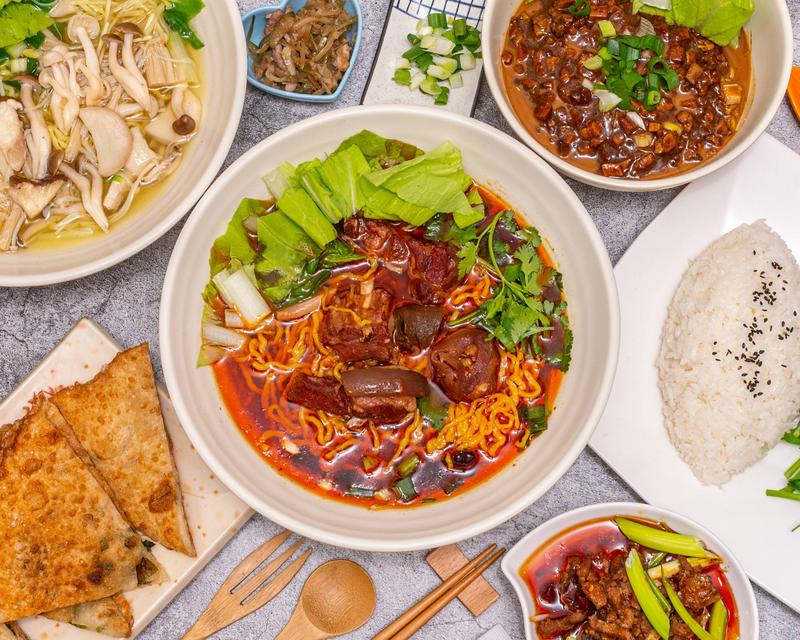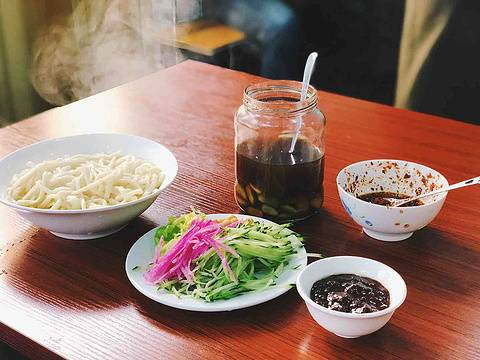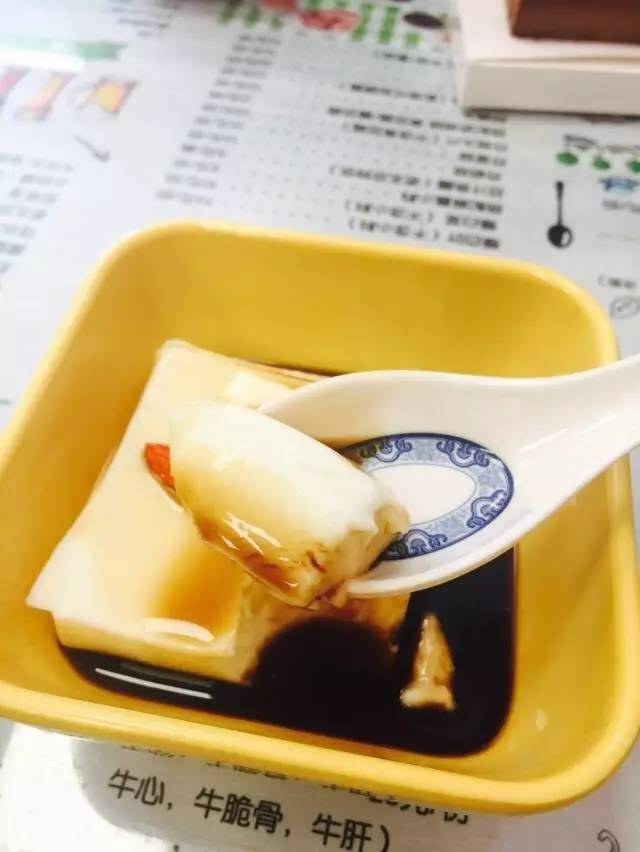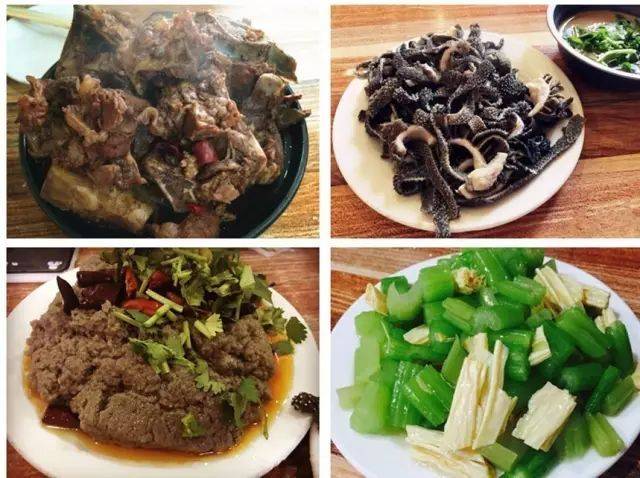Fangzhuanchang No.69 Zhajiangmian
A row of Laba garlic is pickled along the window, available for self-service. Paired with the green garlic cloves, it reflects the meticulousness of Beijingers. Take a bite of the garlic, and it's incredibly refreshing!
Dehua Ju Snack Shop
This place's Da Lu Mian (noodles with gravy) is authentic and traditional. The small shop is always packed, whether it's noon or evening, filled with the sound of Beijing dialect, giving a nostalgic feeling of old alleyway eateries.
De He Zhai (Tianshuiyuan Branch)
Old Beijingers love to make eggplant noodles at home. They cut the eggplant into strips, stir-fry it until it's fragrant, and then pour it over the noodles. In those days, people couldn't afford meat.
Baoduman (Fengtai Science Park Main Store)
Old Beijingers love to drink douzhi early in the morning and enjoy mutton noodle soup at noon. They have a habit of quickly scooping out mutton slices after putting them into the noodle pot. Speaking of this mutton noodle soup, the halal restaurants in the capital are really good.
Gulou Punk Rock Noodles
Beijingers may have heard his songs, but not everyone knows about his noodle shop, the hardcore rock noodle shop—Gulou Punk Rock Noodles.
Guozao Morning
The alkaline noodles are cooked until they are seventy to eighty percent done, then cooled and mixed evenly with sesame oil. There are particular techniques for mixing the noodles, a skill that people in Hubei start developing from a young age.
Tao San He Noodle House
Distinct and non-sticky alkaline noodles, stir-fried upon order with high heat and quick flipping, come together to create this bowl of dry stir-fried noodles with little soup, heavy oil, and fine texture, yet full of chewiness.
Yingchun Noodle House
Capturing the hearts of countless 'Jiangsu, Zhejiang, and Shanghai' with its Three Delicacies Noodles, this place is considered one of the most popular spots. The so-called 'Three Delicacies' is an understatement by the owner! There are definitely more than three types of fresh ingredients in it.
Zui Mian (Weigongcun Branch)
Unlike traditional Beijing-style Zhajiangmian, it uses relatively thin and firm noodles. It lacks the thickness of Zhajiangmian but is more delicate, with the flavors fully absorbed into the noodles.





















